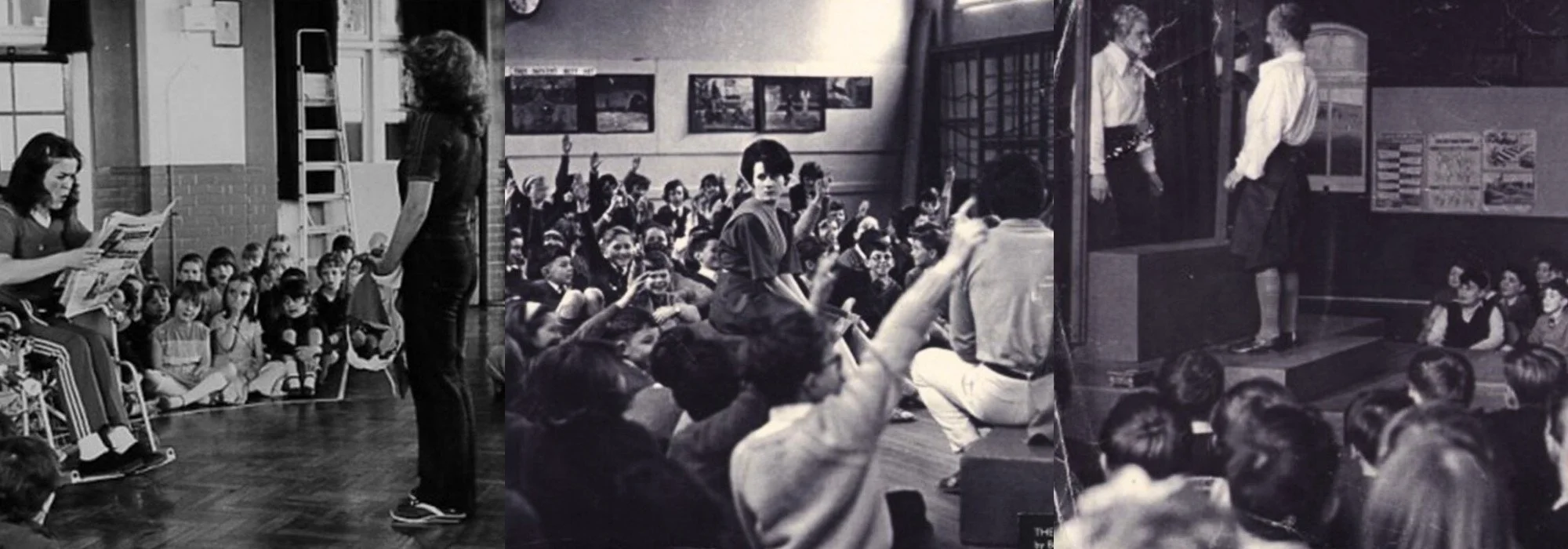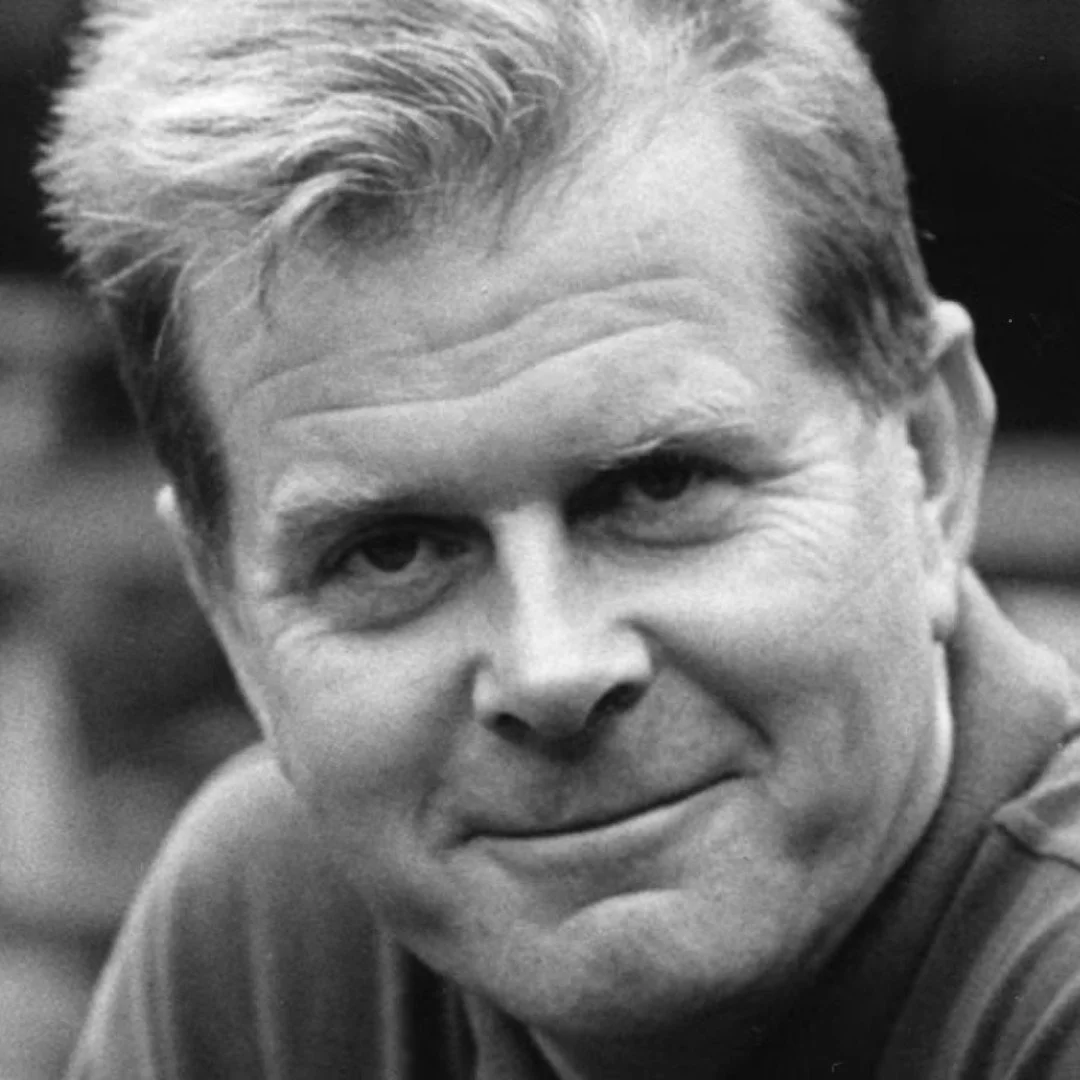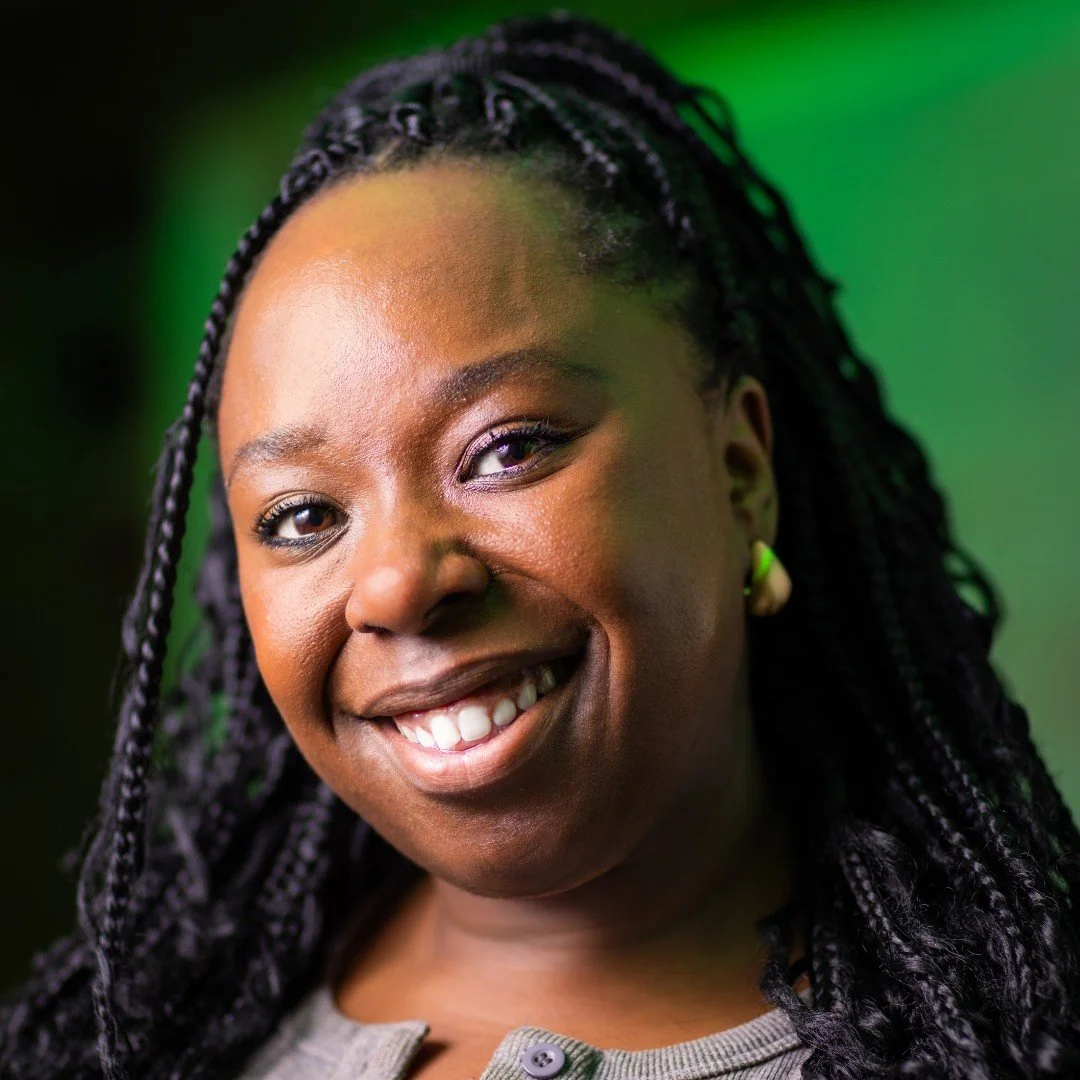
History Snapshot:
Seven Artistic Directors for Seven Decades
Our artistic leadership over the years
“Theatre Centre continues to open up young people’s creative potential in new and dynamic ways. For young people to articulate and contribute their views and passions is vitally important for debate and for democracy.”
Over the course of our 70+ years, our mission of creating outstanding work for young people and performing in schools has been unwavering. Rather than being led by one particular artist, it’s the young people and the landscape of theatre in schools that has led the way.
Our Artistic Directors over the years have been key to keeping that mission on track. With each successive AD, we’ve been able to evolve with the times. If there’s one throughline which links all of them, it’s the commitment to bold and relevant storytelling and to putting theatre and creativity at the centre of young peoples’ lives.
Brian Way: 1953-1977
In founding Theatre Centre with Margaret Faulks in 1953, Brian Way is often credited with originating educational theatre for children. A director, writer, teacher and stage manager among many other things, he was a conscientious objector during World War Two and spent a brief time in jail for this. Many have said this experience created a longstanding desire to challenge authority.
Brian’s work pioneered theatre created specifically for children and young people, which felt truthful and relatable to them, and which actively engaged their creative imagination. He believed that theatre for young people should happen in schools – not in theatres – and should be in the round to make sure that no child was sat near the back of an auditorium. Participation was a huge part of his productions, which he often wrote and directed.
“I believe that theatre can provide intuitive experience and stretch horizons; these can contain truths that are greater than the truths that are the regular diet in compulsory establishment education and the form of education will probably never change until it ceases to be compulsory.”
David Johnston: 1977-1986
After studying Politics at Sheffield University, activism and politics were at the core of David Johnston’s vision of the role of theatre. He was central to the development of the Theatre in Education movement in the UK, co-founding the TIE and community theatre company Key Perspectives. He was also behind Theatre Centre’s controversial Festival of Peace in the 1980s.
David Johnston was a champion of both young people and artists, and introduced a policy of integrated casting to raise the visibility of global majority artists in work for young people. It was essential to him that Theatre Centre’s work was of the highest quality, and he was often dismissive about plays about “kings, queens and wizards”. Instead he believed theatre for young people should reflect the complexities of the world in which young people lived.
“The first thing we changed was the work – moving towards more thematic work – we brought in writers I’d worked with before, ex-TIE people – to use the Brian Way model to do more issue-based work... By 1981 the work had become young people’s theatre as the best TIE teams were doing it at that time – naturalistic, about young people and seeing the world from young people’s eyes, a contact character that you followed and empathised with, conflict, going on journeys, solving problems.”
Libby Mason: 1986-1992
Libby Mason took over as Artistic Director in 1986, after working with political theatre collective Red Ladder. By this point Theatre Centre had a 25 strong team of full-time company members who collectively guided the company, an experiment described as a ‘magnificent failure'.
Libby's artistic leadership saw real development to the creation process for Theatre Centre’s plays, including an all-women’s company with Nona Shepphard, Bryony Lavery and Lisa Evans, created to offer a female-identifying perspective on the work, and engaging with global majority artists and artists with disabilities. Working with Resident Dramaturg Noel Grieg, they set up a programme to develop young writers from marginalised backgrounds. One writer who came out of this was Roy Williams, who had already worked with Theatre Centre as an actor.
“There were tough times…the mixture of the conflict of ideas and personalities and the notion of equality... although during my era it transformed from being completely collective to more hierarchical, it always was a very, very open situation so that people felt free to voice their opinion and criticise me and I was pretty grateful for that. I learnt a lot and I carried those lessons into the work that I did.”
Rosamunde Hutt: 1993-2007
Rosamunde joined Theatre Centre after working as Resident Director of Hijinx Theatre, and continued the legacy of working with outstanding diverse voices, including commissioning Souls by Roy Williams, Listen to Your Parents by Benjamin Zephaniah, as well as plays by Amber Lone, Angela Turvey, Manjinder Virk and Oladipo Agboluaje.
When Theatre Centre celebrated its 50th birthday in 2003, Rosamunde edited the collection Plays for Young People – Celebrating 50 Years of Theatre Centre which included plays by Benjamin Zephaniah, Anna Reynolds, Anna Furse, and Angela Turvey.
“We identified three major cycles in our commissioning process; Rites of Passage, Examining Contemporary Culture and Releasing the Authentic Voice, following on Theatre Centre’s groundbreaking tradition of telling hidden histories or sharing the stories of under represented voices. A key inspiration was Brian Way’s vision of ‘opening the doors and windows of the heart, mind and spirit’ and we aimed to open doors and windows for young people to the imagination, to understanding, to creativity and to new ways of living. We put the art at the heart and the child at the centre and we commissioned thirty plays over a decade, all developed with our target audience.”
Natalie Wilson: 2007–2020
A huge focus for Natalie during her time at Theatre Centre was widening the number of writers creating plays for young audiences, establishing a national writer development programme (live and online) as well as engaging with the education sector. Programmes like Skylines and the Write Lines conference in 2013 to celebrate Theatre Centre’s 60th birthday, Standpoint and Ballot Beats explored young people’s activism and challenged perceptions of making theatre for young people, while inviting theatre makers to debate the importance of involving them in the process.
“Theatre Centre is about investing in potential. The potential of writers, potential of actors, creatives, staff team, and foremostly of young people. The people of them as audience makers, as makers, and thinkers. That is what the Theatre Centre of today strives to do.”
Rob Watt: 2020-2025
If there’s one innovation to highlight during Rob’s time at Theatre Centre, it’s the introduction of the Future Makers process. While the plays had always been developed with young people in mind, and often with their involvement, Rob introduced a framework and making process that grounded all of Theatre Centre’s touring work and new writing in the discussion, debate and creativity of young people. The Future Makers process is truly led by young people’s ideas, feeds into every aspect of our work, and links the plays together with the free creative activities we offer to schools and community groups around the country.
“Theatre, especially new writing, is hard to make, but it’s vital. It gives young people the chance to explore new perspectives, to sit with complexity, to reflect their realities back to the adults around them. It’s a space where they can push boundaries, ask the impossible questions and really be heard. So while my time at Theatre Centre is coming to a close, the mission continues, and I am so excited to see what comes next. Eleanor steps in as Artistic Director very soon, with an energy that tells me great things are coming.”
Eleanor Manners: 2025 to present
Eleanor took over as Artistic Director in April 2025, bringing a breadth of experience in creating work with, for and by young people from her time at Leeds Playhouse and as a freelance artist. With a practice rooted in community-led and participatory theatre, she sees both theatre performances and theatre workshops as vital spaces for young people to explore who they are and the world around them. For Eleanor, theatre is not only a space for creativity but also for activism, giving young people the chance to test ideas, challenge assumptions and shape change. She believes that theatre for young people, on stage and in the room, is more important now than ever. Watch this space!
“Young people need theatre spaces now more than ever. To be together, to express, to grow, to share their ideas, be heard and be challenged. That’s how we develop humans with empathy and interpersonal skills, away from screens and in rooms together. There just isn’t enough of that right now.”








